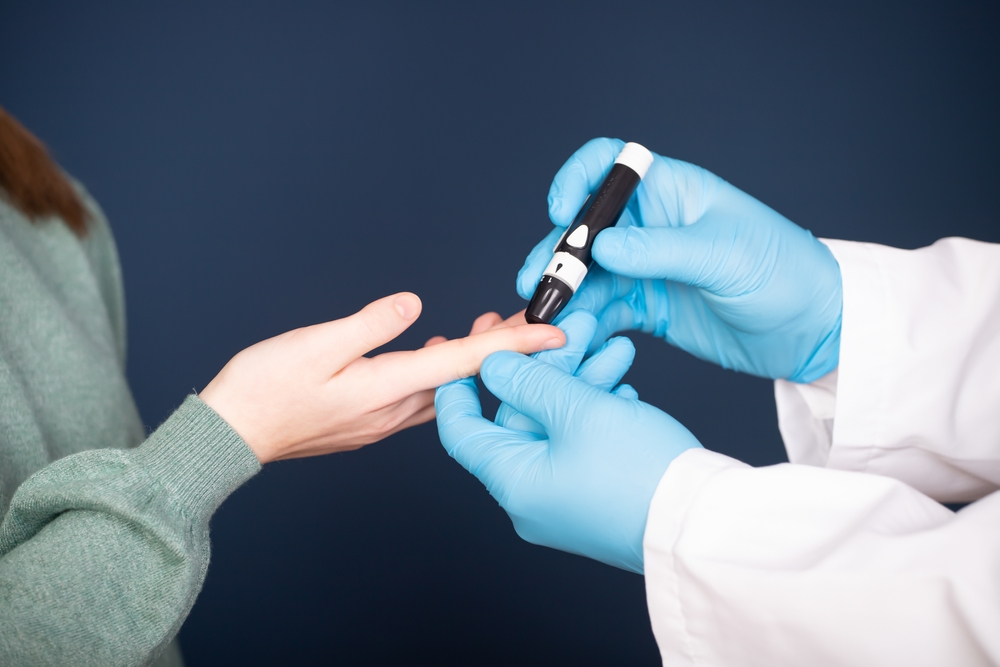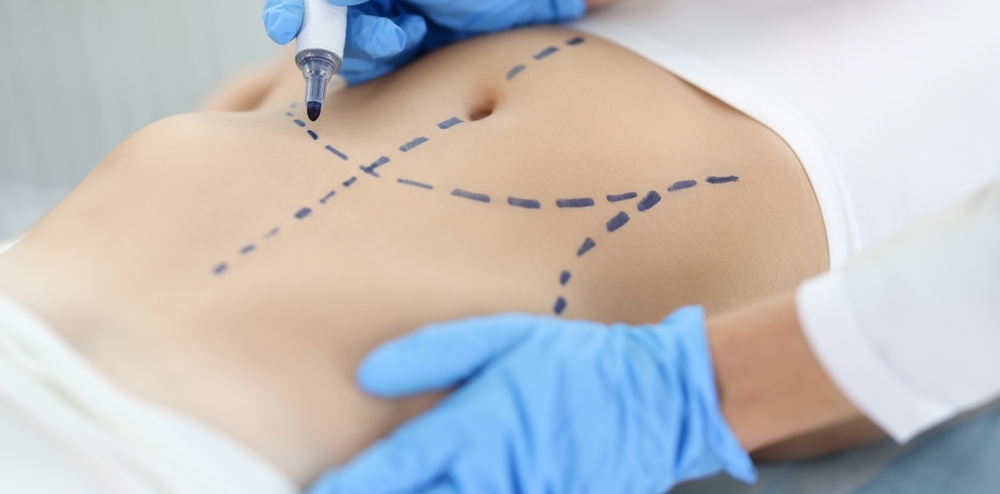
☝️ The most important facts in brief
- A very good Abitur is required to study medicine.
- The degree programme lasts at least 12 semesters.
- The amount of time required to study medicine is higher than for other degree programmes
- After your licence to practise medicine, you can do further training in different specialisations and have a wide range of career prospects.
- Students who do not get a place in Germany can often still study medicine abroad.
📖 Table of contents
Studying human medicine comes with a lot of responsibility. It enables you to examine people as a doctor, make a diagnosis and help with illnesses. A medical degree programme lasts a total of 12 semesters and ends with the official medical examination, the state examination.
Are you interested in studying medicine?
We are happy to advise you free of charge about your options for studying medicine, including medical studies in other EU countries that are fully recognised in Germany.

Together for success - futuredoctor and studying medicine abroad
Would you like to Study medicine abroad and are looking for the most suitable university for you and don't really know where to start looking for a suitable country and a good university? futuredoctor will be happy to support you!
Besides the Student advisory service In addition to selecting the university and accompanying you to the desired on-site appointments, futuredoctor also offers support during the application process and preparation for possible aptitude tests, as well as orientation at the place of study - including the search for accommodation! Get your application quickly and easily free info pack!
The requirements for studying medicine
The requirements for medical studies are high. Every year, significantly more potential students apply for a place on this degree programme than can be accepted. Accordingly, it is difficult to fulfil the admission criteria.
Study places are allocated centrally via the Foundation for University Admissions and its online portal Hochschulstart.de. This is an admission-restricted degree programme for which the NC has been consistently 1.0 in almost all federal states in recent years. The general higher education entrance qualification alone therefore does not ensure that you can easily Study medicine can. In addition to your A-level grades, there are other things that are important in the admissions process, which we will now look at in a little more detail.
The test for medical degree programmes (TMS)
To improve your chances of getting a place at university and get a little closer to your goal of becoming a doctor, you can take part in the TMS take part. This test is a way to improve your A-level grades for the allocation of study places and thus overcome the dreaded numerus clausus. It was specifically designed for the medical degree programmes in human, veterinary and dental medicine as well as for the pharmacy degree programme.
As the test can only work in your favour, it is worth taking it. If you do badly in the TMS, it will not be included in the award criteria. However, the test for medical degree programmes is associated with a fee of 100 euros and can only be repeated once.
Selection procedure of the universities
The internal selection criteria of the individual universities are 60 % included in the allocation of places via the "Hochschulstart" portal. Depending on the university, different aspects are weighted differently. This can be particularly advantageous:
- Completed vocational training and existing professional experience
- Tests that measure the skills required to study medicine, such as the aforementioned TMS or the Hamburg science test "HAM-NAT".
- Recognised services such as an FSJ.
- Completed selection interviews at the universities
Since only very few prospective students achieve an Abitur grade of 1.0 and the so-called additional aptitude quota (ZEQ) and the selection procedures of the universities play a decisive role in the allocation of study places, you should under no circumstances fail to enter the relevant information in the section provided for this purpose on the application form for the study place.
You have to go through these sections during your medical studies
The 12-semester medical degree programme is essentially divided into 3 parts:
- the preclinic
- the clinic
- the practical year (PJ)
These must be completed one after the other. You can only move on to the next section once you have completed your current section and passed every test it contains.
The first section (preclinical)
The study of human medicine begins with the so-called pre-clinical phase. This lasts 4 semesters and is designed to teach you the basics that you will need for the later clinical section. The pre-clinical phase includes the following subjects, among others:
- Biology
- Chemistry
- Physics
- Biochemistry
- Medical terminology
- Physiology
- Anatomy
- Psychology
You will learn a lot about diseases here, but it is primarily about healthy people, their bodies and how they function. Only those who understand these basics will be able to reliably recognise and classify medical problems later on in the clinical part.
After you have completed the pre-clinical phase and submitted all the certificates you have acquired to the state examination office, you will be admitted to the first part of the medical examination. If you pass this state examination, which consists of a written and an oral part, you will be admitted to the second part of the medical degree programme.
The second section (clinic)
The second part of your medical degree programme is much more practice-oriented. At many universities, pre-clinical and clinical courses are also physically separated, meaning that medical students no longer attend lectures on the same campus as students from other specialisms, but instead attend lecture halls directly in or at the university's clinical centre.
In the clinic you can expect the following subjects, among others:
- Pathology
- Internal medicine
- Surgery
- Dermatology
- Gynaecology
- Emergency medicine
- Ophthalmology
- Radiology
- Forensic medicine
- Oncology
- Psychiatry
You will therefore receive comprehensive training, the aims of which are to provide you with an overview of what to expect during your work as a doctor, to teach you practical skills and to prepare you for the second stage of the medical examination and the practical year.
Practical year (PJ)
A practical year follows directly after the clinical part of the programme. You must complete this for 4 months in surgery and 4 months in internal medicine. For the remaining 4 months, you can choose a specialist area of your choice, such as oncology or a hospital specialising in ear, nose and throat medicine.
If you already know that you would like to complete your specialist training in a particular area later on, it is a good idea to use the practical year to gain intensive experience in this area.

The last section of the medical examination
The second stage of the medical examination follows the practical year. There used to be three state examinations, but these have been merged so that as a prospective doctor you have to take a somewhat more comprehensive exam at the end. What used to be the third section is now the second. When reading older information, this still regularly causes confusion.
Passing the final state examination authorises students to work as a doctor. Your training is now complete, although doctors should continue to learn throughout their careers. After all, the current state of research is constantly changing and there is always new information and standards on diseases and their treatment.
Many students need longer than 12 semesters to study medicine
The information on the duration of the degree programme usually refers to the standard period of study. This is the minimum time students need to complete everything specified in the study regulations. However, not all students manage to pass every exam at the first attempt. This is not a disaster at first, as you are allowed to retake each exam at least twice.
For smaller examinations in individual subjects, this is usually possible within the current semester or in the next semester without having to take a break from your studies. However, if it is a state examination, you will usually have to wait one semester before you can start again and will not be admitted to the next stage of your studies until then.
Doctor or specialist? Further training after graduation
After you have studied human medicine for at least 12 semesters and passed every examination, you are authorised to treat patients. For many doctors, however, this is not the end of the story, as a large number of graduates decide to train as a specialist after gaining their licence to practise medicine. This entitles you to work independently in your own practice in the relevant specialisms and is also a prerequisite for a career as a senior or head physician at most clinics.
You don't have to decide straight after your state examination whether you want to train as a specialist or whether you would rather take a different route. Specialist training requires you to go through several stages. This means that you can first apply to the specialist clinics as an assistant doctor, where you have to work for a certain period of time anyway, before you are admitted to the specialist examination and can take it.
Standard study programme or model study programme? What the new ways of studying medicine have to offer
The requirements for studying medicine are clearly defined by the licensing regulations for doctors. As a result, there are no major differences in the organisation and structure of the course and its content at different universities. The model degree programme is an exception.
What is a model degree programme?
In a model degree programme, the individual sections can be structured differently and in some cases even merge seamlessly into one another. Model study programmes were and are created to give the study of human medicine a greater connection to medical practice and to break up old structures. The ultimate aim is to improve patient care in the long term.
In order for a model degree programme to be permitted and lead to a recognised degree, it must be approved by the responsible state examination office and the state medical association. Such a special authorisation is generally valid for a limited period of time. At the end of such a period, a comprehensive evaluation is carried out and the question of whether the modified programme and the differently structured content actually lead to better results is clarified.
Is it worth opting for a model degree programme?
Opting for a model degree programme can be particularly worthwhile if you would like to gain practical experience earlier on in your medical studies and value an education that is not too theoretical. These degree programmes aim to focus on medical activities and impress with correspondingly practical courses.
Model degree programmes are particularly suitable if you want to focus on working with patients later on as a doctor and provide them with the best possible care. If, on the other hand, you are aiming for a career in research or industry, where employees with a medical degree are always in demand, the standard degree programme is often the better choice.
For many people, a doctorate is part of being a doctor
When many people see a picture of a doctor, the term "doctor" immediately springs to mind. An important note here: a doctorate is not absolutely necessary for you to work as a doctor in the diagnosis or treatment of illnesses. Such a title is not even required to have your own practice.
Nevertheless, many medical students decide to start their doctoral thesis during their studies or to write it immediately afterwards. One of the reasons for this is that doctoral theses in medicine can often be much smaller than those in other subjects such as biology or maths. Nevertheless, the medical doctoral thesis is of course also associated with a considerable amount of work.
Didn't get a place to study in Germany? Studying abroad as an alternative
The development in the allocation of study places for human medicine in Germany clearly shows that studying medicine is almost only possible with a very good Abitur, and even then it is not a given that you will get the coveted study place.
Many prospective medical students who are determined to go all the way to their licence to practise medicine therefore decide to study abroad. The requirements for the allocation of a study place there are different to those at home in Germany.
If required, we will be happy to take care of your application to the universities of your choice. There you can study the required semesters in English or in some cases even in German. For more information, please contact us or take a look at the other content on this website.
Starting shot
What are you waiting for? 🎉
Order your information package now, find out about studying medicine abroad and get started as a medical student!





